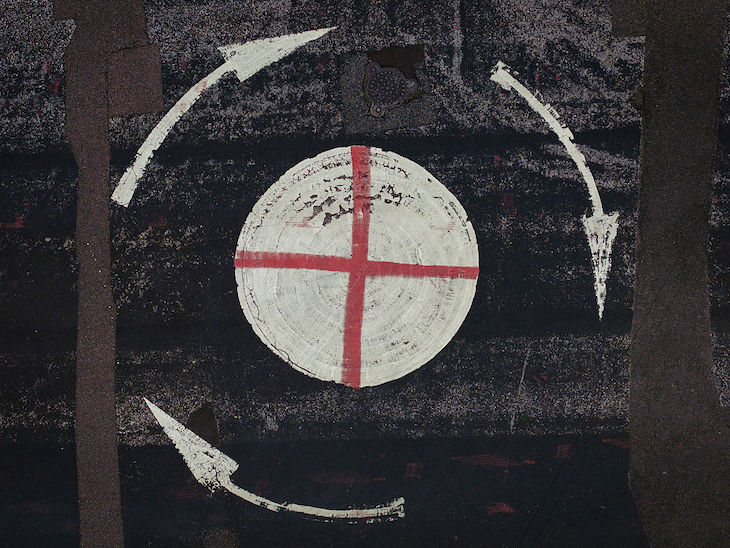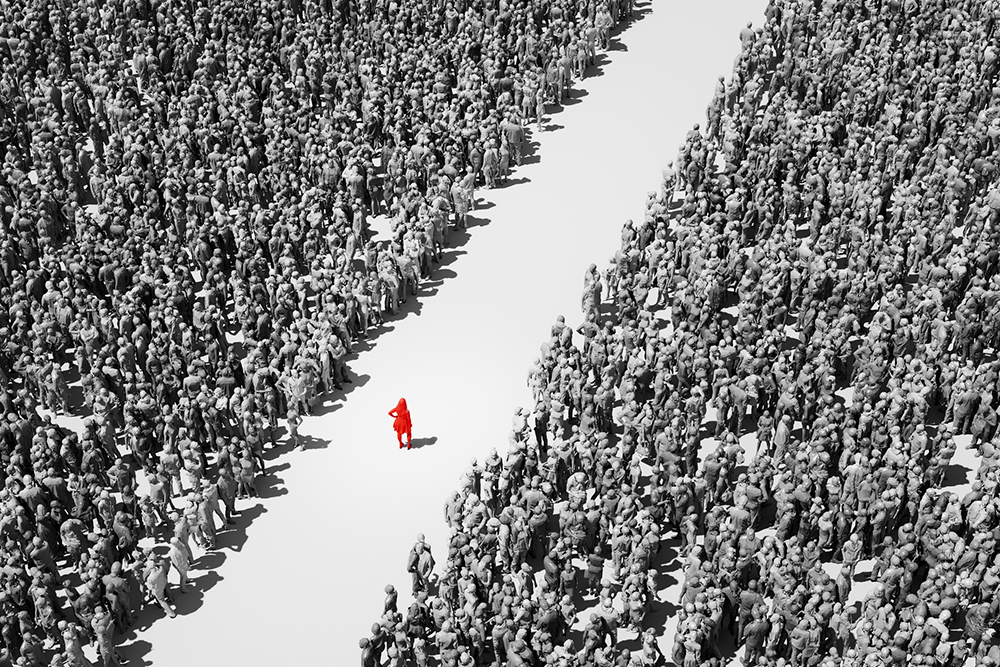Trends in society always come and go, but one that shows no signs of abating is the propensity among many to take offence at words or symbols. Just because that derisive word of the last decade, ‘snowflake’, has fallen out of fashion, it doesn’t mean that these hypersensitive souls have disappeared.
Being compassionate in a patronising fashion from afar is mandatory behaviour for white liberals and our aloof, elite classes
Emily Spurrell, chairwoman of the Association of Police and Crime Commissioners, is a case in point. Spurrell hit out at the surge in St George’s and Union Jack flags being hung on lamp posts, motorway bridges and street signs across England. In a speech to a police conference, she said: ‘Flags are an expression of our identity and proudly fly outside our police buildings. But when they are used to provoke fear or assert dominance, they become tools of division. That is not free expression, that is intimidation. These actions are sowing fear, fuelling division and leaving our neighbours, our colleagues and our friends, feeling unsafe in their homes and afraid to walk down the street.’
Spurrell is not alone in her concern. Last week, senior NHS leaders claimed that staff who care for patients in their own homes feared that some areas have become ‘no-go zones’ for them, owing to the presence and proliferation of St George’s flags.
When that report emerged, we read no direct complaints or personal testimony from NHS staff who had faced hostility or even felt threatened by these emblems. It was all second-hand anecdote and subjective opinion, fears and feelings. ‘We saw during the time the flags went up, our staff, who are a large minority of black and Asian staff, feeling deliberately intimidated,’ said one NHS trust executive, who, in the words of the Guardian report ‘asked to remain anonymous.’
That executive will have had his or her own reason for remaining anonymous, but given that in all probability he or she wasn’t black or Asian – government figures from 2023 showed that around 86 per cent of board members in NHS trusts were white – he or she might have felt embarrassed to speak openly on the subject. What would a white person sitting in a boardroom know about the experience of black and Asian frontline NHS workers? To speak on their behalf as a concerned white liberal would bring about that inevitable accusation beloved of the hyper-progressive left: having a ‘white saviour complex’.
Yet having a ‘white saviour complex’ is precisely what we’re continuing to see here over this subject. Being compassionate in a patronising fashion from afar is mandatory behaviour for white liberals and our aloof, elite classes. Using the experience – real or imagined – of minorities or the oppressed in order to make yourself look more virtuous is a rite of passage for our conspicuously compassionate class, or what Thomas Sowell once dubbed ‘the anointed’.
In his 1995 book, The Vision of The Anointed, Sowell explained how this overclass, forever inclined not only to see themselves correct on all matters ‘but morally on a higher plane’, are fond of taking up the cause of ‘the less fortunate’ and turning them into mascots in order ‘to demonstrate the superiority of the anointed over the benighted.’ That latter category, the benighted, are the kind of people who put up St George’s flags in England today: the class it is acceptable and fashionable to disdain and deride.
Thirty years on, Sowell’s dissection of the surreptitious tactics and strategies deployed by the elites remains all too relevant. What he hadn’t foreseen in his book, however, is the emergence of the deeply offended and easily offendable class, those who get their way using another devious trick: by crying that their feelings have been hurt.
That has been one of the unmistakeable hallmarks of the Great Awokening that erupted around ten years ago, and which some claim is now on the wane. The passive-aggressive language of hurt ‘feelings’ and ‘offence’ have proliferated in recent years, with such words as ‘insensitive’ and ‘inappropriate’ also being weaponised by progressives in order to shut other people up.
People are fully cognisant now that taking offence is a powerful tool, to such a degree that it has become common for some to actively seek offence in order to get what they want, by casting themselves in the role or ally of the oppressed, or casting their opponents in the role of the oppressor.
Staff at the BBC, which has tried valiantly to disguise its contempt for those hoisting the flags, appear to be on to this ruse. As Guido Fawkes revealed yesterday, journalists at BBC Breakfast recently sent a mass email to every regional outpost asking colleagues to find material on council workers being ‘abused’ for taking down flags in their area, a message that pleaded: ‘has anyone gathered anything on this at all?’
This is desperate stuff, but not unexpected. When it comes to potentially hurtful displays of patriotism which might offend their mascots, not only do those on the liberal left default to ‘white saviourism’, they descend into what in other circumstances they would blithely dismiss as a ‘moral panic’.







Comments